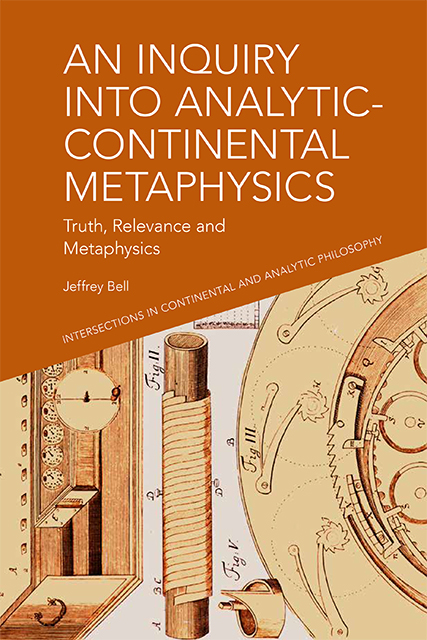Book contents
- Frontmatter
- List of Contents
- Acknowledgements
- Introduction
- §1 Problem of the New
- §2 Problem of Relations
- §3 Problem of Emergence
- §4 Problem of One and Many
- §5 Plato and the Third Man Argument
- §6 Bradley and the Problem of Relations
- §7 Moore, Russell and the Birth of Analytic Philosophy
- §8 Russell and Deleuze on Leibniz
- §9 On Problematic Fields
- §10 Kant and Problematic Ideas
- §11 Armstrong and Lewis on the Problem of One and Many
- 12 Determinables and Determinates
- 13 The Limits of Representational Thought
- 14 Learning from a Cup of Coffee
- 15 Carnap and the Fate of Metaphysics
- 16 Truth and Relevance
- Conclusion
- Bibliography
- Index
13 - The Limits of Representational Thought
Published online by Cambridge University Press: 25 October 2023
- Frontmatter
- List of Contents
- Acknowledgements
- Introduction
- §1 Problem of the New
- §2 Problem of Relations
- §3 Problem of Emergence
- §4 Problem of One and Many
- §5 Plato and the Third Man Argument
- §6 Bradley and the Problem of Relations
- §7 Moore, Russell and the Birth of Analytic Philosophy
- §8 Russell and Deleuze on Leibniz
- §9 On Problematic Fields
- §10 Kant and Problematic Ideas
- §11 Armstrong and Lewis on the Problem of One and Many
- 12 Determinables and Determinates
- 13 The Limits of Representational Thought
- 14 Learning from a Cup of Coffee
- 15 Carnap and the Fate of Metaphysics
- 16 Truth and Relevance
- Conclusion
- Bibliography
- Index
Summary
1. Predicates as Determinates or Determinables?
Let us return to the question that guided (or perhaps haunted) much of the argument of the previous two sections – namely, the question of determining whether or not one is correctly applying a predicate to an object, or, stated differently, whether the property named by the predicate is indeed being correctly named by the predicate. We sometimes get it clearly wrong. When my daughters were young, younger than two, one of their first words was cat, or ‘kittycat’ as they would say it. We also had raccoons that would frequent our back patio, looking for the cat food we would often have outside, and the first time they saw a raccoon on our back patio the girls called it a ‘kittycat’. We can understand the reason they did so. Having never seen a raccoon before, they immediately saw it in light of animals who most closely resemble a raccoon, and for each of my daughters that animal was a cat. We corrected their mistake, telling them this was a raccoon and not a cat, and it didn't take long before they could see the differences between raccoons and cats and correctly apply the predicates ‘… is a cat’, ‘… is a raccoon’ to the animals before them. For D.M. Armstrong and David Lewis, similarly, a key to applying predicates correctly is that they account for a resemblance between entities. A fundamental role that immanent universals play, Lewis argued, is that they can account for the resemblance of entities. To explain why certain entities resemble one another, we can, as Armstrong does, turn to a shared universal, as that which provides the explanation. Lewis, by contrast, accepted resemblance as a primitive, and on this basis argued instead that we do not need to postulate the existence of a universal as some shared entity but can simply refer to classes of individuals that resemble one another. For Lewis, however, some classes are more natural than others, constituting what he called natural properties, and these natural properties entail a resemblance, again taken as a primitive, among entities that carve nature at its joints.
Information
- Type
- Chapter
- Information
- An Inquiry into Analytic-Continental MetaphysicsTruth, Relevance and Metaphysics, pp. 124 - 145Publisher: Edinburgh University PressPrint publication year: 2022
